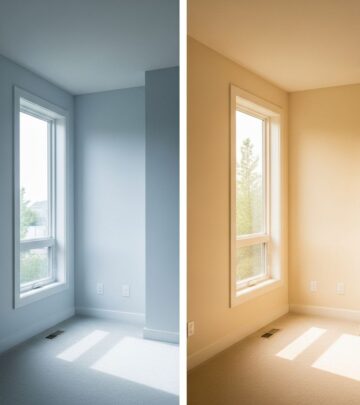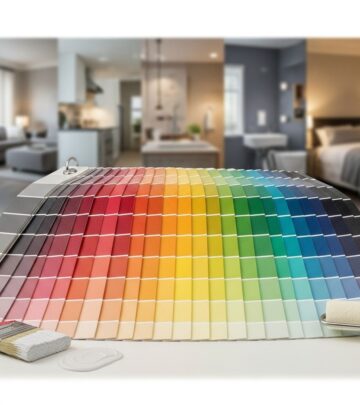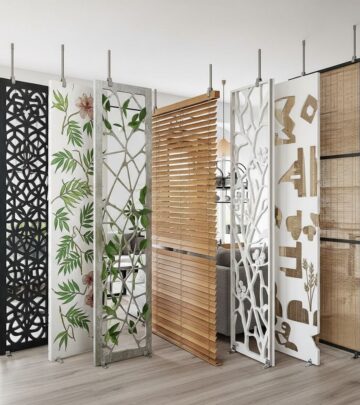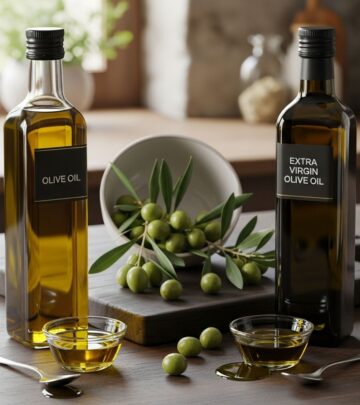Metal Roof Vs Asphalt Shingles Cost: Comprehensive 2025 Guide
Discover budget-friendly options and expert insights to choose the perfect roofing solution.
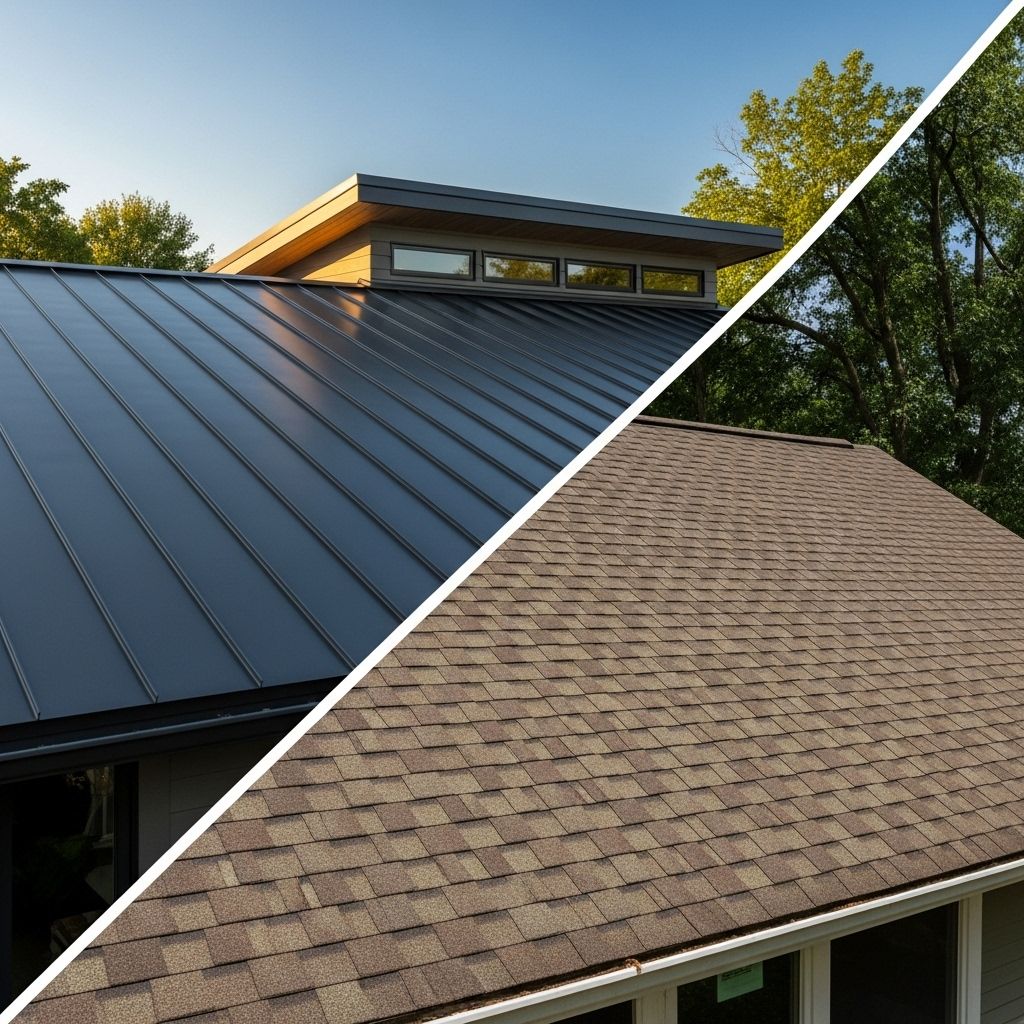
Image: HearthJunction Design Team
Shingles vs Metal Roof Cost: What You Need to Know in 2025
When it comes to roofing your home, two of the most popular options are metal roofs and asphalt shingles. As a homeowner, understanding the cost implications of each option is crucial for making an informed decision that aligns with both your immediate budget and long-term goals. This comprehensive guide breaks down the various cost factors of metal roofs versus shingles, helping you determine which roofing material offers the best value for your specific situation.
Metal roofs have gained significant popularity in recent years due to their durability and longevity, but they come with a higher initial price tag compared to traditional asphalt shingles. As of 2025, the price difference between these two roofing options continues to be substantial, though many homeowners find the long-term benefits of metal roofing justify the upfront investment.
Initial Cost Comparison: Metal Roofs vs. Asphalt Shingles
The most immediate difference between metal roofs and asphalt shingles is the upfront cost. When planning your roofing budget, it’s essential to understand what you’ll be paying at the outset for both materials and installation.
Material Costs
Metal roofing materials generally cost between $4 and $30 per square foot, depending on the type of metal chosen. This wide price range reflects the variety of metal roofing options available, including:
- Steel roofing (galvanized or galvalume)
- Aluminum roofing
- Copper roofing (premium option)
- Zinc roofing (premium option)
- Metal shingles or tiles
- Standing seam metal panels
In contrast, asphalt shingles typically cost between $4 and $20 per square foot. The price varies based on the quality and style of shingles:
- 3-tab shingles (most economical)
- Architectural or dimensional shingles (mid-range)
- Premium designer shingles (higher-end)
For a typical 2,000-square-foot roof, asphalt shingle materials might cost between $8,000 and $40,000, while metal roofing materials could range from $8,000 to $60,000. This represents a significant cost difference at the higher end of the spectrum.
Labor and Installation Costs
The complexity of installation significantly impacts the overall cost of your new roof. Metal roofing installation requires specialized skills and techniques, making labor costs substantially higher than for asphalt shingles.
Labor for metal roofing installation typically costs $300 to $500 per square (100 sq. ft.), resulting in a labor cost of $4,500 to $7,500 for a 1,500-square-foot roof. The installation process is more involved because metal panels or shingles require precise cutting, fitting, and securing to ensure weathertightness and durability.
Asphalt shingle installation is considerably less complex and generally costs $2 to $3 per square foot, or $200 to $300 per square. For the same 1,500-square-foot roof, labor costs would range from $3,000 to $4,500. The simpler installation process makes asphalt shingles a more budget-friendly option for those looking to minimize upfront expenses.
When combining material and labor costs, the total installation cost for a metal roof can range from $10,000 to $18,000 for a 2,000-square-foot home. In comparison, installing asphalt shingles typically costs between $5,000 and $10,000 for the same roof size.
| Roofing Type | Material Cost (per sq ft) | Labor Cost (per sq ft) | Total Cost (2,000 sq ft home) |
|---|---|---|---|
| Asphalt Shingles | $4 – $20 | $2 – $3 | $5,000 – $10,000 |
| Metal Roofing | $4 – $30 | $3 – $5 | $10,000 – $18,000 |
Long-Term Value and Cost Considerations
While the initial cost difference between metal roofs and asphalt shingles is substantial, evaluating the long-term value provides a more complete picture of the actual investment.
Lifespan and Durability
One of the most significant advantages of metal roofing is its exceptional longevity. Metal roofs typically last between 40 and 70 years, depending on the type of metal and quality of installation. Some premium metals like copper can last even longer, potentially exceeding 100 years with proper maintenance.
Asphalt shingles, by comparison, have a much shorter lifespan of 20 to 30 years. Even the highest-quality architectural shingles rarely exceed 30 years of service life. This means that over the lifetime of a metal roof, you might need to replace an asphalt shingle roof two to three times.
The durability factor extends beyond just lifespan. Metal roofs resist extreme weather conditions including:
- High winds (many can withstand winds up to 140 mph)
- Heavy snow loads
- Hail (though they may dent)
- Fire (metal roofs are non-combustible)
- UV radiation and heat
Asphalt shingles are more vulnerable to these elements and often experience issues like cracking, curling, and granule loss over time, particularly in regions with extreme temperature fluctuations or severe weather events.
Maintenance Costs
The ongoing maintenance requirements and associated costs differ significantly between metal and asphalt roofs. Metal roofs require minimal maintenance throughout their lifespan, typically limited to occasional inspections, cleaning, and checking that fasteners remain secure.
Asphalt shingle roofs generally require more regular maintenance, including:
- Replacing damaged or missing shingles
- Addressing curling or buckling issues
- Cleaning to prevent algae and moss growth
- Checking for and repairing wind damage
Over a 50-year period, the maintenance costs for an asphalt shingle roof (including at least one full replacement) can easily exceed the initial cost difference between the two roofing options. This makes metal roofing potentially more economical in the long run despite the higher upfront investment.
Energy Efficiency and Cost Savings
Metal roofs offer superior energy efficiency compared to asphalt shingles, which can translate to meaningful cost savings over time. Metal roofing reflects solar radiant heat rather than absorbing it, which can reduce cooling costs by 10-25% during hot weather.
Many metal roofing products are now manufactured with special reflective coatings that minimize heat gain, earning them ENERGY STAR certification. These “cool roofs” can significantly reduce air conditioning demands in warmer climates or during summer months.
Asphalt shingles, particularly darker colors, absorb and retain heat, which can increase cooling costs during warmer months. While there are “cool” asphalt shingles available with reflective granules, they generally don’t match the reflective properties of metal roofing.
The annual energy savings from a metal roof can add up substantially over its lifespan, offsetting some of the initial cost premium compared to asphalt shingles.
Regional Considerations Affecting Roofing Costs
The cost-effectiveness of metal versus asphalt shingle roofing can vary significantly depending on your geographic location and local climate conditions.
Climate Impact on Roofing Decisions
In regions prone to severe weather events, the durability advantages of metal roofing may provide greater value. Areas with frequent hailstorms, high winds, heavy snowfall, or hurricane threats often see better performance from metal roofing systems, potentially reducing repair and replacement expenses over time.
However, in extremely cold climates, metal roofs can sometimes make homes more expensive to heat, as they don’t provide the same insulating properties as asphalt shingles. This may necessitate additional insulation measures, adding to the overall cost.
In hot, sunny regions, metal’s reflective properties can generate significant energy savings, potentially offsetting much of the initial cost difference over time through reduced cooling expenses.
Local Labor and Material Availability
Installation costs can vary widely by region based on:
- Local labor rates and availability of qualified metal roofing installers
- Regional material costs and shipping expenses
- Local building codes and permit requirements
In some areas, there may be fewer contractors with metal roofing expertise, driving up installation costs due to limited competition. Conversely, in regions where metal roofing is common, costs may be more competitive.
Resale Value and Return on Investment
When considering the total cost equation, it’s important to factor in how each roofing type might affect your home’s resale value.
Metal roofs generally provide better return on investment (ROI) than asphalt shingles. Homes with metal roofs tend to sell for slightly higher values, particularly in markets where buyers are educated about the long-term benefits of metal roofing. The premium can partially offset the higher initial installation cost.
The increased home value is typically attributed to:
- The known longevity of metal roofing
- Lower anticipated maintenance and replacement costs for future owners
- Energy efficiency benefits
- Aesthetic appeal, particularly with modern architectural styles
While asphalt shingles don’t significantly increase home value compared to other roofing options, they remain a solid choice if initial cost savings are your priority or if you don’t plan to own the home long-term.
Making the Final Decision: Which Roof is Right for You?
The decision between metal roofing and asphalt shingles ultimately depends on your specific circumstances and priorities. Consider these factors when making your choice:
Choose Metal Roofing If:
- You plan to stay in your home long-term (15+ years)
- You value durability and minimal maintenance
- Energy efficiency is a priority
- You live in an area with severe weather conditions
- The long-term value outweighs the higher initial investment for your situation
Choose Asphalt Shingles If:
- Initial budget constraints are your primary concern
- You may sell your home within the next 10-15 years
- You live in an area where asphalt shingles perform adequately
- You prefer the traditional appearance of asphalt shingles
- Qualified metal roofing installers are limited or exceptionally expensive in your area
Frequently Asked Questions (FAQs)
Q: How much more expensive is a metal roof compared to asphalt shingles?
A: Metal roofs typically cost 2-3 times more than asphalt shingles for initial installation. For a 2,000-square-foot home, expect to pay $5,000-$10,000 for asphalt shingles versus $10,000-$18,000 for metal roofing.
Q: Is a metal roof worth the extra cost?
A: For many homeowners, yes. Metal roofs last 2-3 times longer than asphalt shingles, require less maintenance, potentially save on energy costs, and may increase your home’s resale value. When calculating lifetime costs, metal often proves more economical despite the higher upfront investment.
Q: Do metal roofs lower insurance premiums?
A: In many cases, yes. Some insurance companies offer discounts of up to 35% for homes with metal roofs due to their superior fire resistance, durability, and weather resistance. Check with your insurance provider about potential premium reductions.
Q: How long do metal roofs and asphalt shingles typically last?
A: Metal roofs typically last 40-70 years, while asphalt shingles generally last 20-30 years. This significant difference in lifespan is a key factor when evaluating the long-term cost comparison.
Q: Are metal roofs noisy when it rains?
A: This is largely a myth with modern metal roofing installations. When properly installed with solid decking and insulation, metal roofs are no noisier than other roofing types during rainfall. The sound-dampening effect of proper installation minimizes noise concerns.
References
- https://www.billraganroofing.com/blog/how-much-metal-roof-cost-compared-asphalt-roof
- https://blog.mcelroymetal.com/metal-roofing-and-siding/how-much-does-a-metal-roof-cost-compared-to-shingles
- https://bestroofhelp.com/blogs/metal-roof-vs-shingles-cost/
- https://renovaroofing.com/blogs/metal-roof-vs-shingles-cost/
- https://metalcon.com/blog/metal-roof-vs-shingles-a-comprehensive-guide/
Read full bio of Srija Burman


